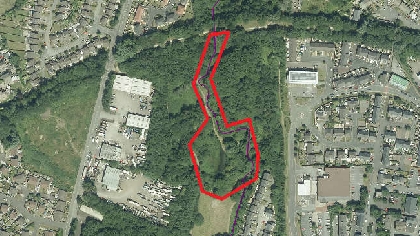
Working alongside Groundwork Greater Manchester, TCV, Canal & Rivers Trust, City of Trees and Mersey Rivers Trust and in partnership with Manchester City Council and Tameside Council, the project will enhance habitats at seven sites across the Medlock Valley, covering almost 30 hectares.
The Species Survival Fund grant's core focus is to halt and reverse the decline in species abundance by preserving and restoring vital habitats. The project will deliver a number of habitat improvements including:
- Restoration work across the Ashton and Rochdale canal network
- Naturalising the riverbank at Lees Brook Nature Park
- Grassland and wetland restoration and creation
- Active woodland management
- Invasive Non-Native Species management and control
- Planting of approximately 5,000 trees and understory planting.
These habitats will become home to species including water voles, waxcap mushrooms and the Great Crested Newt.
Project partners will coordinate a number of community events and activities to help connect local people with nature, focusing primarily on unemployed people and those experiencing poor health and wellbeing.
The funding will create six new green job roles and includes complimentary training programmes leading to an upskilled workforce more able to respond to the climate emergency.
Councillor Chris Goodwin, Cabinet Member for Neighbourhoods, said: “This funding is great news for Oldham.
“It will help boost the natural environment and wildlife numbers and is further evidence of our work to become the greenest borough in Greater Manchester whilst creating employment opportunities for local residents.”
Ginny Hinton, Deputy Director Cheshire to Lancashire Area Team, Natural England, said: "Natural England is really proud to support the Species Survival project in the Medlock Valley. It will be a flagship project for how we can bring nature back to urban environments.”


 Student making headlines with new shoe brand
Student making headlines with new shoe brand
 Think! Fatal 4 Offences
Think! Fatal 4 Offences
 Don’t Be Puzzled by Dogs Wearing Muzzles
Don’t Be Puzzled by Dogs Wearing Muzzles
 Millions seized from criminals to help communities tackle crime
Millions seized from criminals to help communities tackle crime

